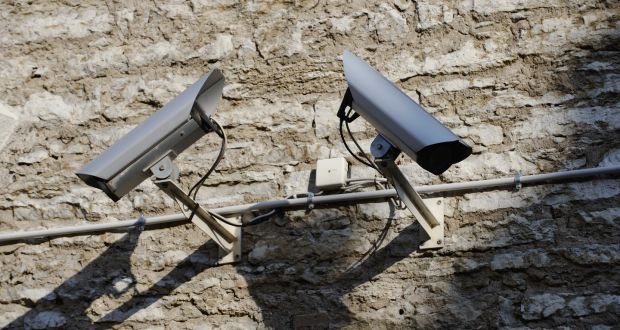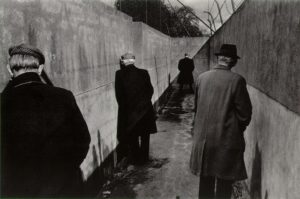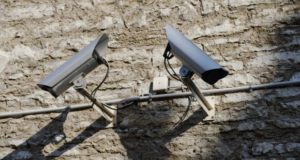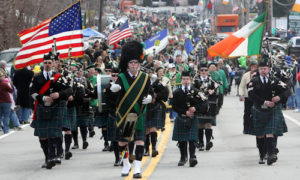
Nothing to see here

However, at certain points in the week this alley becomes incredibly popular, a steady stream of visitors flocking to and from its narrow confines. In their wake these visitors leave a different kind of stream, a pungent, fetid one, courtesy of the city’s many fine drinking establishments. Bladders emptied, suitably relieved, these public urinators, both male and female, continue into the night, to pastures new.
And sure isn’t that what laneways are for?
Who among us hasn’t utilised one in such fashion, often in pairs, groups, absent-mindedly spraying our scent all over the walls as we engage in loud, foul-mouthed, conversation? Why queue to use one of the handful of public toilets dotted around the town, and paying for the privilege, when you can do it for free practically anywhere you like?
And it’s even better out the country. There’s fields out there, loads of them, all begging to be watered, you could even fertilise a few of them if you so wished.
There’s a limit to this kind of behaviour though, a place where a line must be drawn. That line exists somewhere between dusk and dawn, between the shadow of night and the brightness of morning.
It’s one thing to peek out the curtains at midnight to see a bevy of pissed-up students relieving themselves down the aforementioned alley, but quite another to glance out the window at midday and see a feckless degenerate do the same.
It happens though, it happens a lot.
Shameless to the last, these men casually wander down the alley, while women and children walk past, unzip and let rip, before merrily re-joining society, a new-found skip in their step.

However, should Limerick’s ‘smart city’ pilot project be a success, one would hope that this, and all other lanes, will be as pristine, as untouched, as the good dinnerware your mam’s been threatening to use since the day she got it thirty years ago.
Due to be completed by the end of this month, the community CCTV scheme will see hi-tech cameras installed in the following areas; Abbeyfeale, Adare, Askeaton, Caherconlish, Castleconnell, Cappamore, Croom, Foynes, Kilmallock, Murroe, Newcastle West, Pallasgreen, Patrickswell and Rathkeale.
Initially thought to be just standardised monitoring devices, designed to prohibit anti-social behaviour and street crime, they are now being likened to invasive technology used in authoritarian states. Raising concerns about the capabilities of the cameras, two local solicitors have questioned the true objective of the Limerick City and County Council funded scheme, claiming that it contravenes privacy laws and is, in effect, illegal.
Described as an “integrated smart CCTV platform” the system will be used to track car number plates, promote tourism, improve animal control, aid traffic management and help to fight illegal dumping. Which all sounds great. However, according to its dissenters, similar programmes in mainland Europe have caused controversy, with the cameras being used for facial and vehicle recognition and, in some cases, the tracking of a person’s movements.
Essentially, the complaints boil down to one thing; the notion that these cameras will be used for mass surveillance. That ‘they’ will always have eyes on us, that our freedom as individuals is being impinged, and that this is just one more step towards the Orwellian dystopia many have been predicting for years.
Call me too trusting, but I don’t share their concern.
So what if these cameras can follow me into Tesco and see what I’m having for dinner? Or if they can scan my cherubic features and note that I haven’t shaved in four days? I don’t care, let them scan away, I have nothing to hide. If this is the price of living in a safe, properly policed, society, then they can install x-ray cameras for all I care.
The people advising caution over this are the same folk who insist that the CIA are listening to our phone calls, that Mark Zuckerberg is gawping out at us through our webcams, and that we’re all probably living in the matrix anyway.
To be blunt, these cameras should only alarm those who’ve got something to hide. What other possible reason could there be for fearing their existence?

We might be forced to take more care when walking down the street from now on, but where’s the harm in that? If you’re a law-abiding citizen, then you’ve got nothing to worry about. If you’re a tinfoil-hat wearing, conspiracy theorist, then yes, these are troubling times and you have my sympathy.
More pertinently though, this may be a way for us to make up for the shortfall in policing seen since the economic downturn.
All those closed Garda stations, still not replaced, a shrinking staff which is only now, slowly, being restored to its former numbers, and an ailing police force which is currently stumbling from one scandal to another, that could all be resolved by a slick CCTV system capable of detecting crimes as and when they happen, rather than after the fact.
Ask yourself this: when was the last time you went out in Limerick city and saw a strong police presence on the streets? When was the last time you exited a nightclub, into a heaving throng of boozed-up revellers, and felt entirely safe?
And it’s not just at night. We don’t police our streets, our city centres, our towns, very effectively in this country. For proof of this you only need look at the court reports in this, or any local, newspaper. Tale after tale of woe, of innocent victims being preyed upon by vicious bullies, attacked and assaulted for their meagre possessions, or just for a laugh. Lives ruined because there was no-one there to step in, to intervene before things got out of hand. This shouldn’t occur in any functioning society, that air of menace which hangs over certain no-go areas shouldn’t exist. We should be free to go where we want, when we want, without fear of being ambushed.
If it takes a few nosey cameras and a breach of our privacy to achieve that, then I’m all for it.
A saint by any other name

The organisers of the Six Nations have got their wish, as have publicans up and down the country, as Ireland attempt to secure just their third Grand Slam, at Twickenham, on St. Patrick’s Day. Suffice to say, it will be mayhem, regardless of the result.
Thankfully, the parade will be well over by the time the celebrations (or commiserations) begin, and hopefully no children will be harmed during the ensuing revelry.
But just who will we be honouring on this, our national day? Is it the holy Saint Patrick, the Apostle of Ireland? Or is it Paddy, the shamrock-wielding blackguard who ran the vicious serpents off our land?
To some this may just be a matter of semantics, but to Fianna Fáil Councillor, Kevin Sheahan, there’s an important distinction to be made here.
The Askeaton councillor has urged Limerick people to refer to the day by its proper and correct title, St. Patrick’s Day, rather than the abbreviated version; Paddy’s Day. You could accuse the councillor of nit-picking, of being a stickler for tradition, but I happen to think he’s got a point – although not for the reasons you might think.
My fear is that our national day is gradually becoming more Americanised, that, as we continue to borrow from across the Atlantic, it is morphing into a bastardised hotchpotch of US fanfare and Celtic tradition.
Did you know that the first ever parade was held in Boston not Ireland? And that the Americans introduced green beer into the festivities? Where they lead, we follow. Which is why I’m worried. Because you know what they call St. Patrick’s Day don’t you? ‘St Patty’s Day’.
My advice is take heed of Cllr Sheahan’s words, refer to our saint by his proper name, because otherwise, future generations are going be celebrating a day named after a piece of ground meat.


